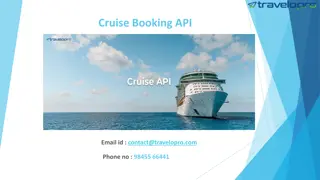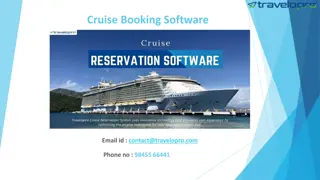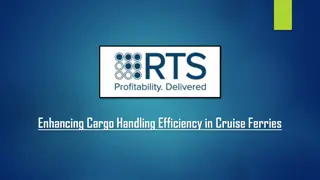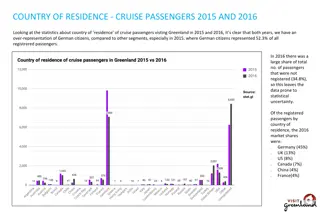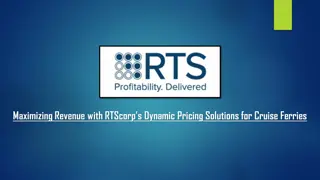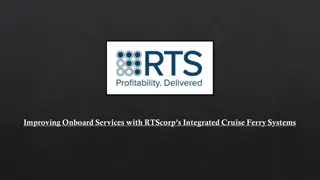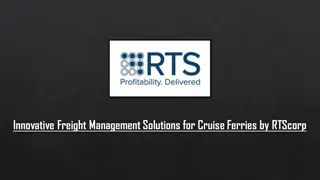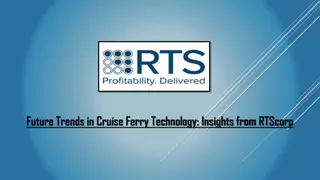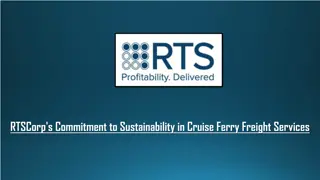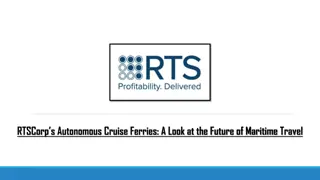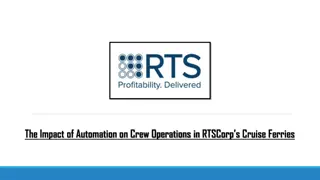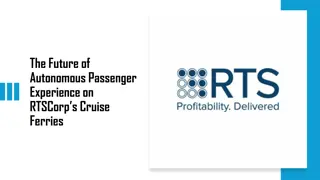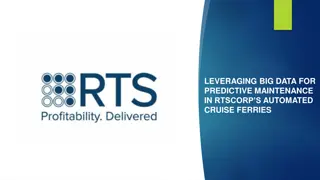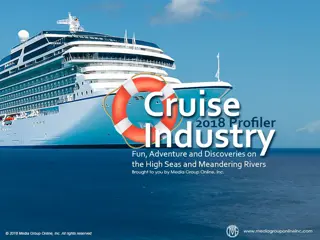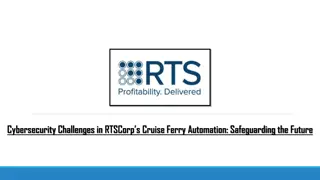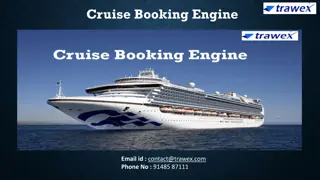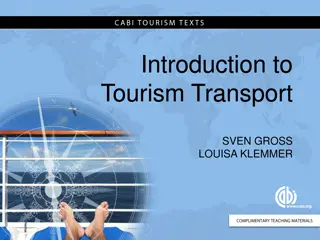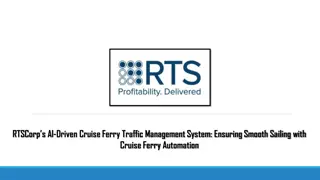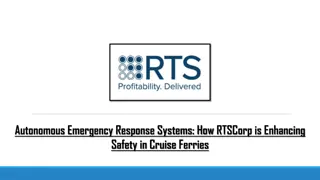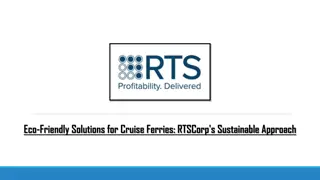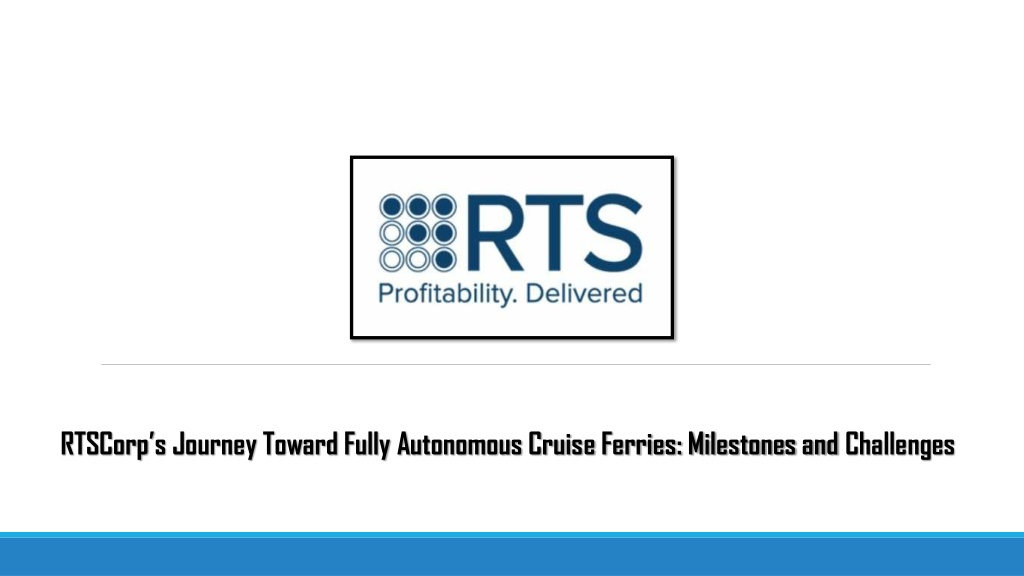
RTSCorp’s Journey Toward Fully Autonomous Cruise Ferries Milestones and Challenges
In recent years, the maritime industry has witnessed rapid technological advancements, and one of the most promising innovations is the concept of Cruise Ferry Automation. RTSCorp, a global leader in maritime technology, is at the forefront of this t
Download Presentation

Please find below an Image/Link to download the presentation.
The content on the website is provided AS IS for your information and personal use only. It may not be sold, licensed, or shared on other websites without obtaining consent from the author. Download presentation by click this link. If you encounter any issues during the download, it is possible that the publisher has removed the file from their server.
E N D
Presentation Transcript
RTSCorps Journey Toward Fully Autonomous Cruise Ferries: Milestones and Challenges
In recent years, the maritime industry has witnessed rapid technological advancements, and one of the most promising innovations is the concept of Cruise Ferry Automation. RTSCorp, a global leader in maritime technology, is at the forefront of this transformation, working toward fully autonomous cruise ferries. This vision represents a blend of cutting-edge automation technologies, environmental sustainability, and enhanced passenger experiences. However, the path to full autonomy is not without challenges.
Early Milestones in RTSCorps Journey RTSCorp s foray into cruise ferry automation began with small steps, gradually building a robust framework to automate essential ferry operations. The initial milestone was the development of a semi-automated system for navigation and docking, reducing the reliance on manual operations. This system utilized advanced sensors and AI algorithms to enhance safety and precision in challenging maritime environments. The company's next significant achievement was the introduction of an integrated communication and control system, which allowed for better coordination between the onboard systems and shore-based management centers. This development marked a key step toward creating a connected and responsive cruise ferry ecosystem. By leveraging artificial intelligence (AI) and machine learning (ML), RTSCorp introduced predictive maintenance tools, allowing real-time monitoring of engines, hull integrity, and other vital components. This not only reduced downtime but also significantly enhanced operational efficiency and cost-effectiveness.
The Road to Fully Autonomous Cruise Ferries As RTSCorp progressed, the ultimate goal of fully autonomous cruise ferries came into clearer focus. The integration of AI-based navigation systems, enhanced obstacle detection, and automatic docking solutions brought the company closer to this ambition. Collaborations with leading maritime research institutions and regulatory bodies were pivotal in navigating the complexities of autonomous navigation. One of the biggest milestones was the successful testing of unmanned short-distance ferries in controlled environments. These tests demonstrated that automation could handle various operational scenarios, from complex weather conditions to high-traffic routes, without human intervention. Challenges on the Horizon Despite these advancements, achieving fully autonomous cruise ferry operations remains a complex challenge. One of the primary concerns is ensuring the safety and reliability of automated systems. Maritime environments are highly unpredictable, with changing weather conditions, varying water depths, and other vessels to account for. While AI and machine learning are key to addressing these factors, ensuring 100% safety in all circumstances is a major hurdle.
Regulatory challenges are another significant barrier. Current international maritime laws are not fully equipped to handle the complexities of autonomous ships, requiring close collaboration with global regulatory bodies to create new frameworks and standards. RTSCorp has been actively involved in lobbying for changes that would pave the way for autonomous vessel operations. Public perception and passenger trust also play a critical role. While the idea of an autonomous cruise ferry may sound futuristic, many potential passengers are still wary of traveling on a vessel without a human captain or crew. Building confidence in the technology and ensuring its reliability will be essential for widespread adoption.
Looking Forward RTSCorp s journey toward fully autonomous cruise ferries is a testament to its commitment to innovation and progress in Cruise Ferry Automation. While there are challenges to overcome, the milestones achieved thus far demonstrate that the future of maritime transportation is increasingly automated, efficient, and sustainable. With continued research, collaboration, and technological advancements, the dream of fully autonomous cruise ferries may soon become a reality.


